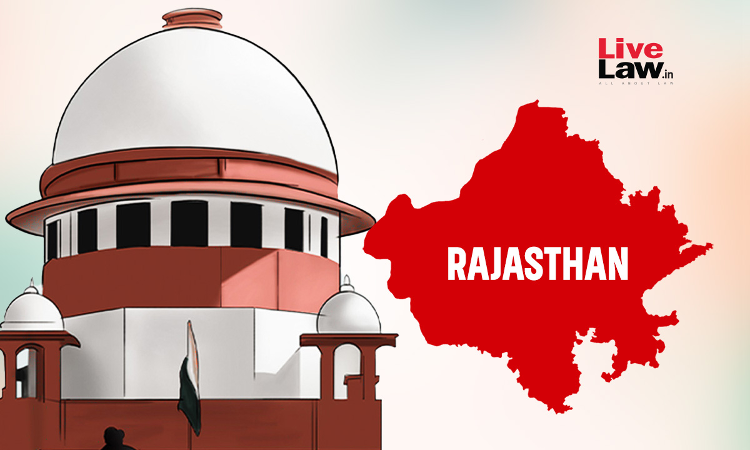- Home
- /
- Supreme court
- /
- State Rules Can't Be Inconsistent...
State Rules Can't Be Inconsistent With Central Rules Under CST Act : Supreme Court Rejects Rajasthan's Appeal
Yash Mittal
17 April 2025 12:10 PM IST
The Supreme Court upheld the Rajasthan High Court's decision striking down Rule 17(20) of the Central Sales Tax (Rajasthan) Rules, 1957 (Rajasthan CST Rules) as ultra vires the Central Sales Tax Act, 1956, noting that the State Government cannot exceed its delegated powers by authorizing cancellation of Form C, which the Central Rules do not permit. The bench comprising Justices Abhay S Oka...
The Supreme Court upheld the Rajasthan High Court's decision striking down Rule 17(20) of the Central Sales Tax (Rajasthan) Rules, 1957 (Rajasthan CST Rules) as ultra vires the Central Sales Tax Act, 1956, noting that the State Government cannot exceed its delegated powers by authorizing cancellation of Form C, which the Central Rules do not permit.
The bench comprising Justices Abhay S Oka and Ujjal Bhuyan dismissed the State of Rajasthan's appeal, which challenged the High Court's decision of declaring Rule 17(2) as ultra vires due to inconsistency between the Central and State Laws. The reason being that the Rajasthan CST Rules allowed the cancellation of Form C if obtained fraudulently, however, the Central Rules (Registration and Turnover Rules, 1957) prescribe Form C but do not provide for its cancellation.
The Court observed that if the Central Rules do not provide for the cancellation of Form C, a State cannot exceed its delegated authority by framing rules allowing such cancellation, even in cases of fraud, misrepresentation, or legal contravention. The Court clarified that the State can frame Rules, but it should not be in derogation of the Central Rules.
Background
The case involved a challenge to sub-rule (20) of Rule 17, introduced by Rajasthan in 2014, which allowed state tax authorities to cancel Form C if obtained through fraud, misrepresentation, or legal violation.
The respondent sold goods to two firms using Form C to claim a reduced tax rate under Section 8(1) of the CST Act. Upon investigation, the firms were found to be bogus, leading to cancellation of the forms and increased tax liability for the respondent.
The Rajasthan High Court struck down the rule as ultra vires the CST Act, prompting the State to appeal to the Supreme Court.
Decision
Affirming the High Court's decision, the judgment authored by Justice Oka emphasized that the Central Government alone has the power to prescribe conditions for Form C, and since the Central Rules do not permit cancellation, the State cannot introduce such a provision overriding the Central framework.
“the Central Registration Rules do not vest power in any authority to cancel the declaration in Form C. Therefore, if the State Government exercises the rulemaking power under sub-section (3) of Section 13 by making rules providing for cancellation of a declaration in Form C as provided in Central Registration Rules, the State Rules will be inconsistent with the Central Registration Rules framed by the Central Government in exercise of power under Section 13(1)(d) of the CST Act. The State Government cannot frame rules in exercise of power under Section 13(3) which will be inconsistent with the rules framed by the Central Government in exercise of powers under Section 13(1) of the CST Act.”, the Court said.
The Court added that only "the Central Government has the rulemaking power to prescribe the form of declaration and lay down particulars to be contained in any declaration", and not the State Government.
Given the aforesaid, the Court dismissed the appeal.
Case Title: STATE OF RAJASTHAN & ORS. versus COMBINED TRADERS
Citation : 2025 LiveLaw (SC) 432
Click here to read/download the judgment



